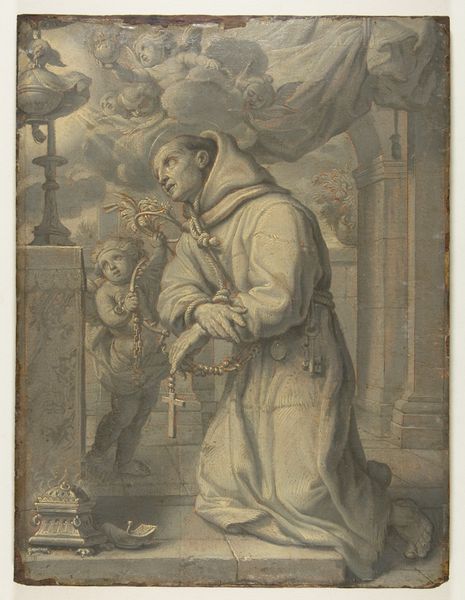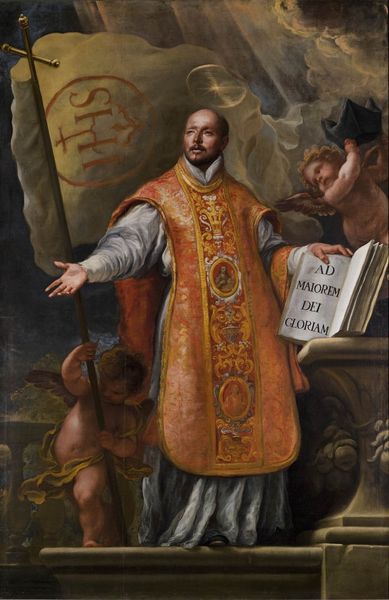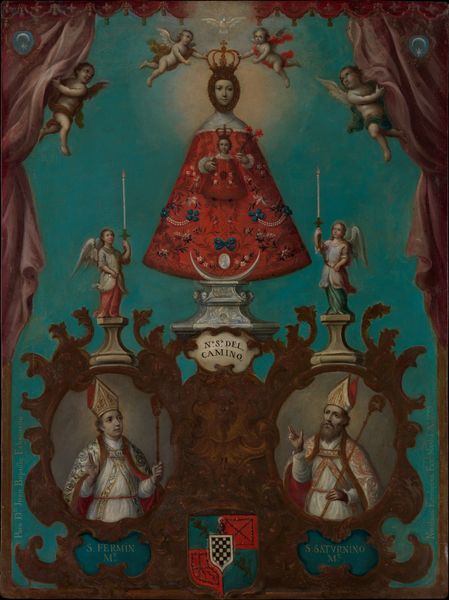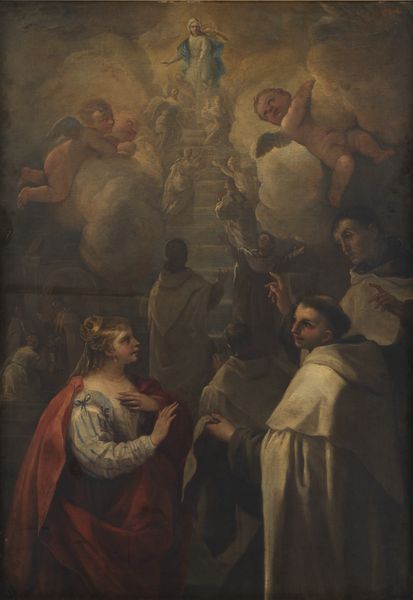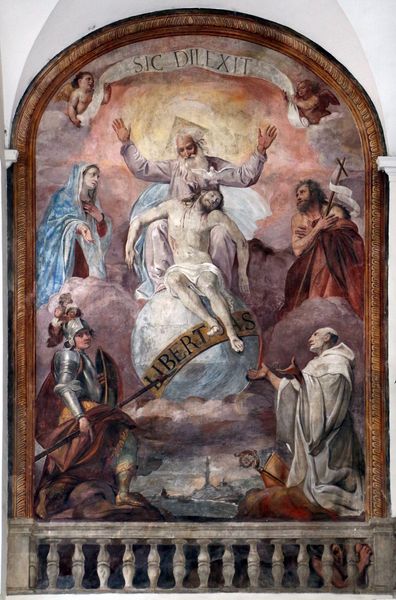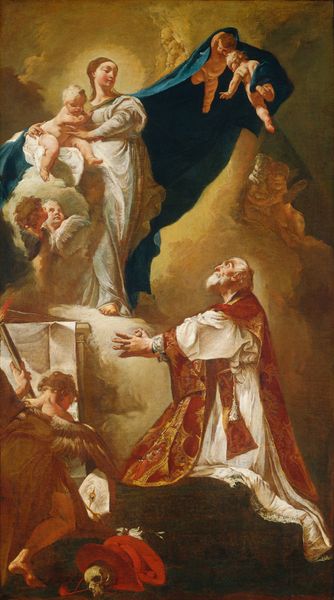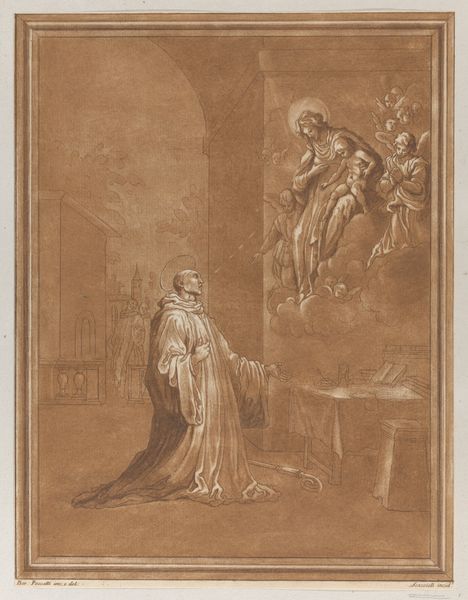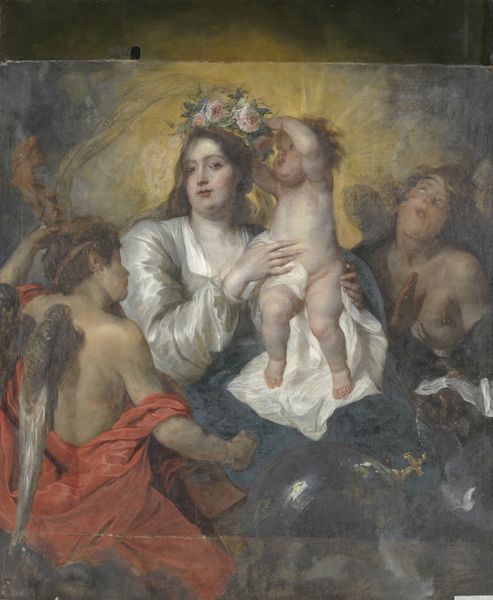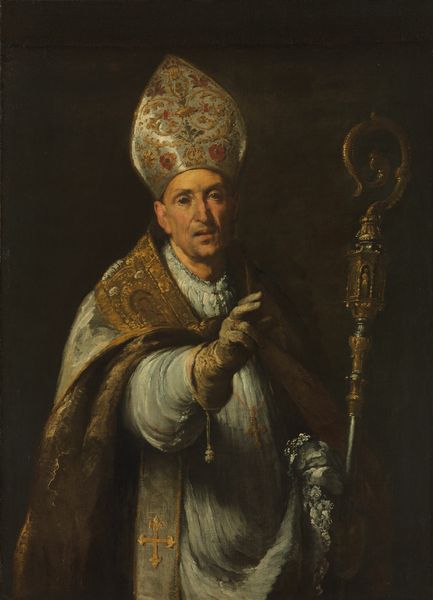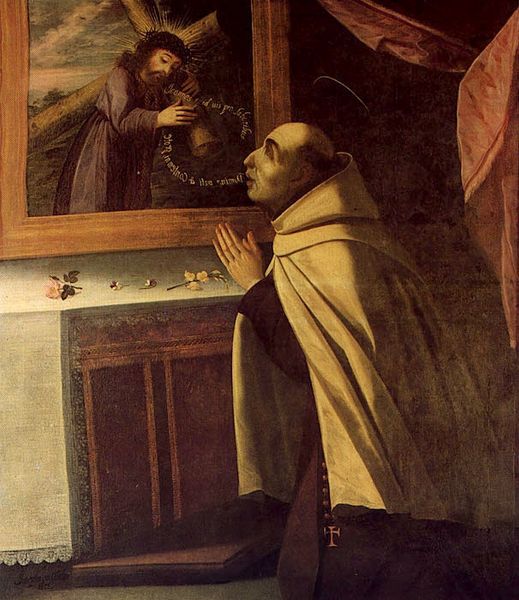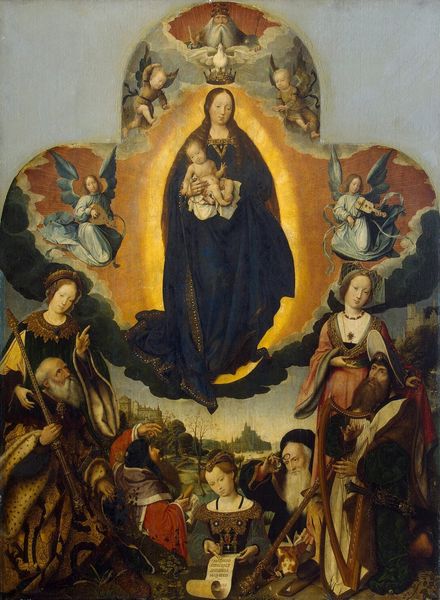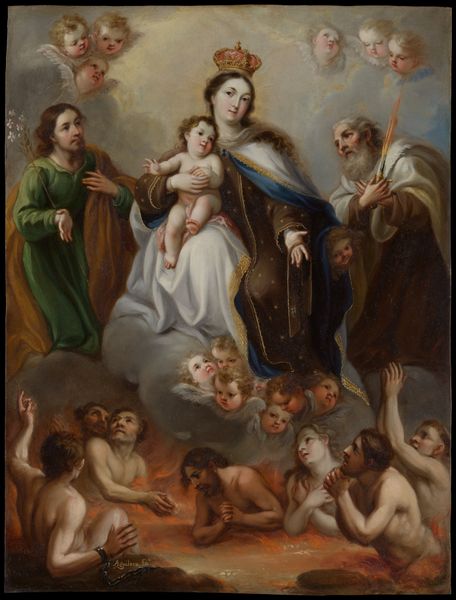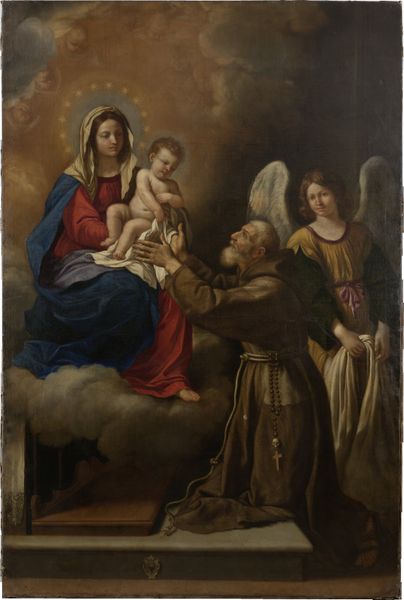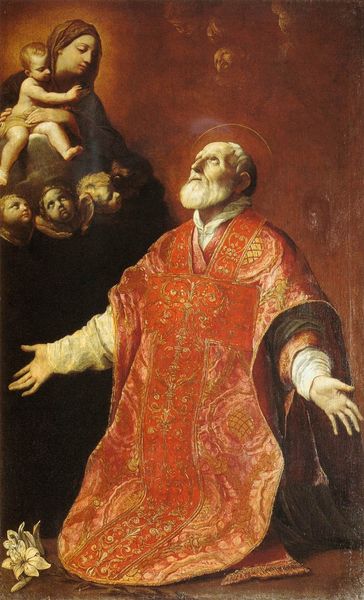
painting, oil-paint
#
baroque
#
painting
#
oil-paint
#
figuration
#
oil painting
#
history-painting
Copyright: Public domain
Jan Cossiers painted "St Rumbold Blesses St Libertus" in the 17th century, using oil on canvas. Looking closely, we see how Cossiers built up the image in layers, achieving depth and luminosity. The work’s materiality deeply influences its appearance, and the brushstrokes give texture to the fabrics, armor, and skin. Cossiers was part of a rich tradition of Flemish painting, engaging with techniques refined over generations, and handed down through the studio system. The painting’s cultural significance lies in its depiction of religious power and hierarchy. Note the contrast between St. Rumbold's ornate robes and St. Libertus’s humble posture. The work also speaks to the labor involved in producing such a painting, from grinding pigments to stretching canvas. Understanding these aspects of making, and the painting’s context, helps us appreciate the full depth of meaning in this work.
Comments
No comments
Be the first to comment and join the conversation on the ultimate creative platform.
